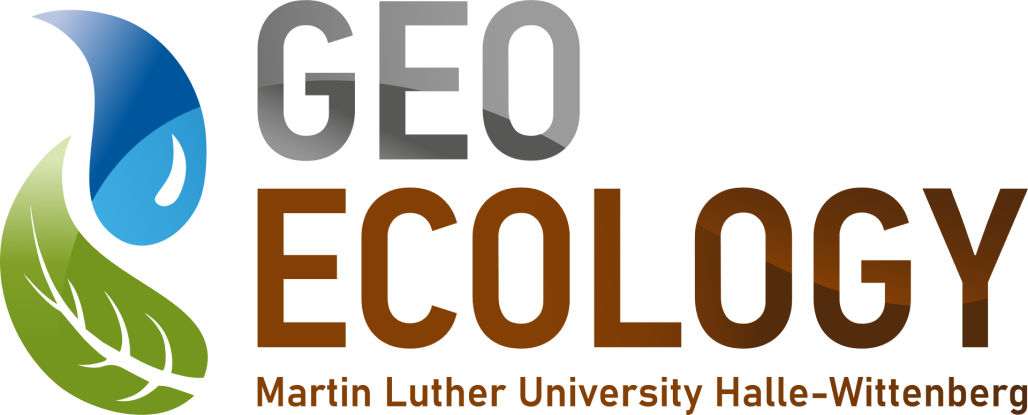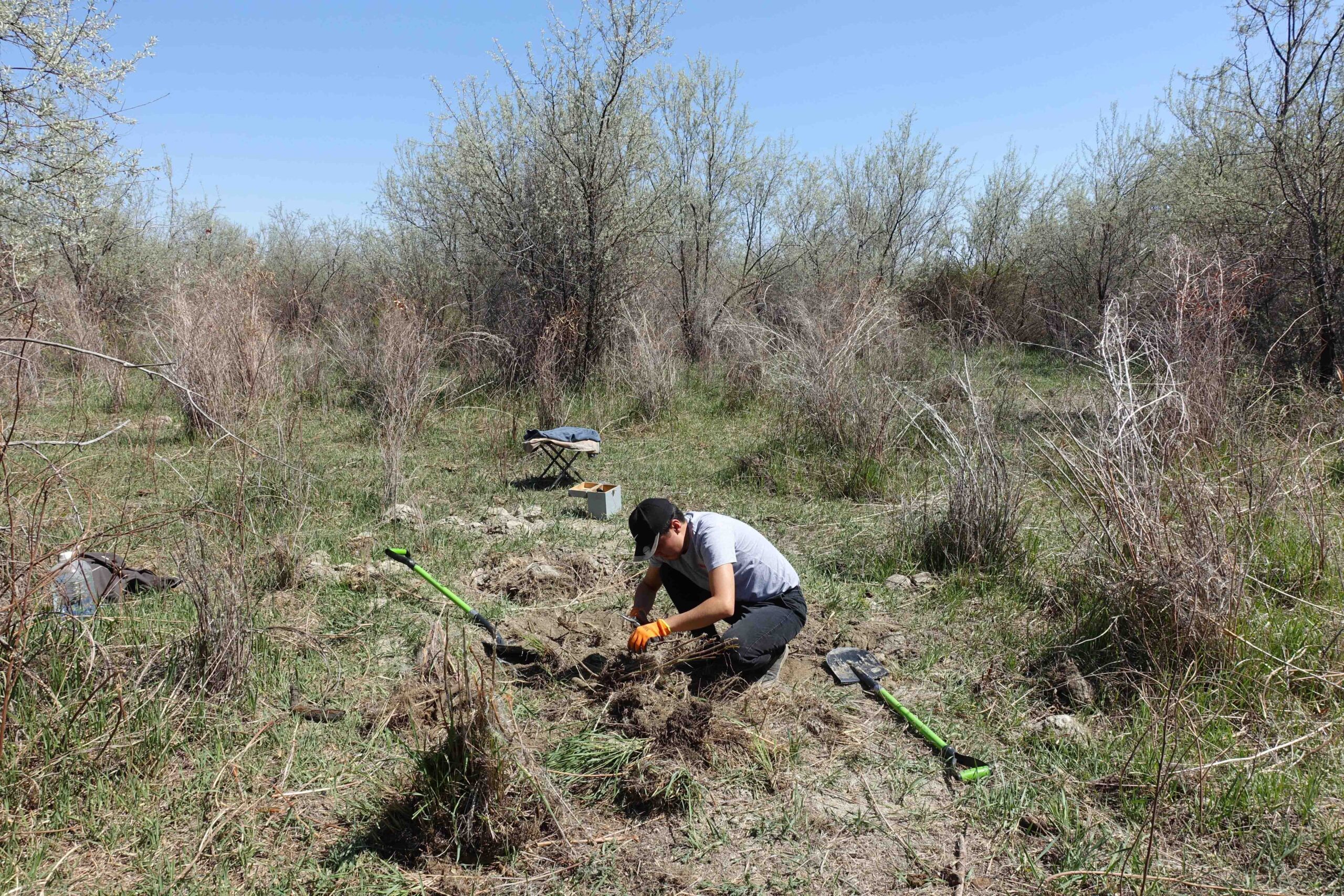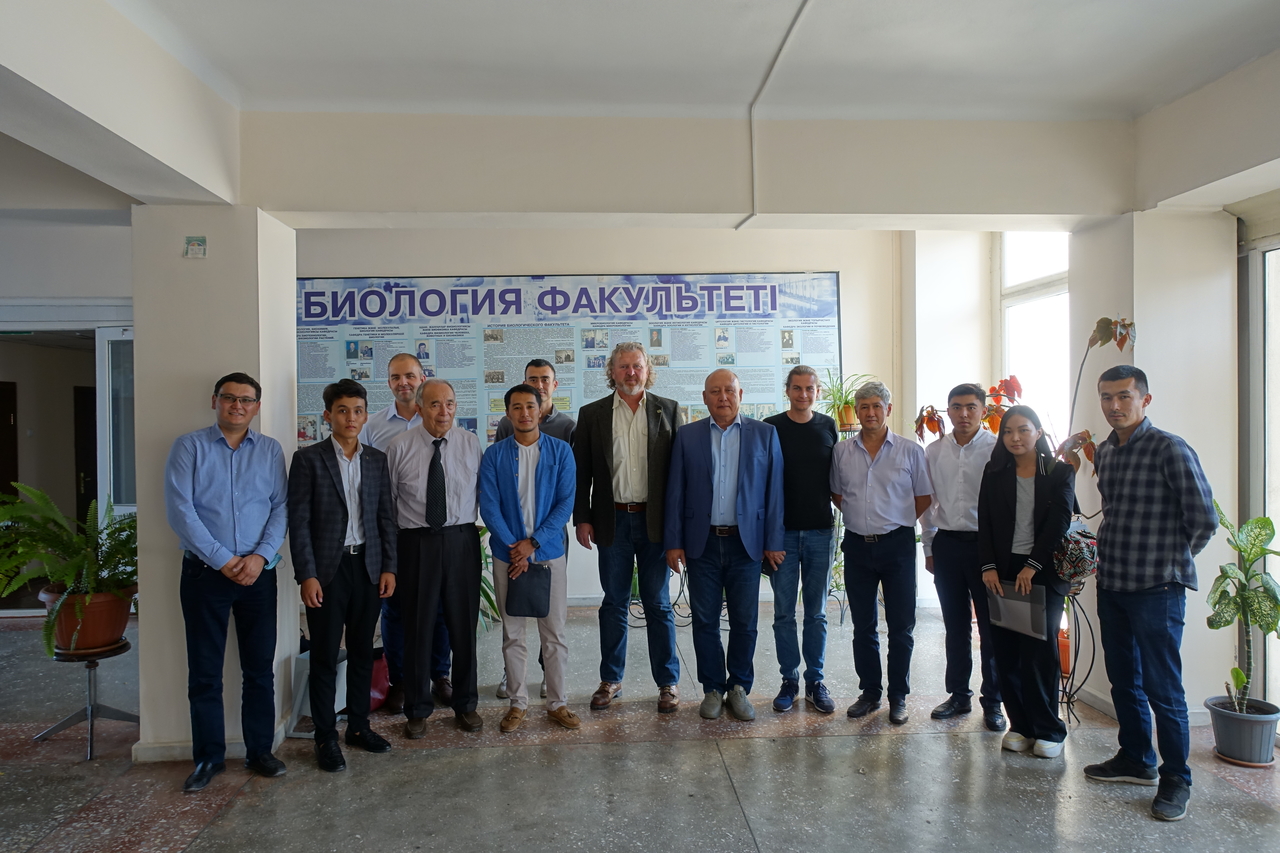The project focuses on the production of a cotton-like fibre quality that, as a blending partner, allows processing on locally available cotton textile machines. A German-Central Asian consortium of a total of 13 partners from the fields of agriculture, sustainable land use/landscape ecology, textile technology, textile marketing and sustainability accounting is working closely together in KendyrTEX to further develop the wild plant Kendyr with artisanal processing technology into a crop with an industrial character for use in innovative textile and technical applications. In addition to climate- and site-adapted, but at the same time as productive and quality-oriented as possible agricultural cultivation, the second step is to develop modern and effective harvesting and processing methods for gentle and environmentally friendly fibre production. The holistic project approach includes ecosystem aspects of cultivation and agricultural technology, textile technological processing as well as product development and marketing.
Sub-project leader:
Team:
Project partners:
- Hanffaser Uckermark eG, Prenzlau
- Leibniz Institute for Agricultural Engineering and Bioeconomy e.V., Potsdam
- Saxon Textile Research Institute e.V., Chemnitz
- hessnatur Foundation
- World Agroforestry (ICRAF) Central Asia, Kyrgyzstan/Kazakhstan
- TOO Kazhemp, Kazakhstan
- Tobinamcell LLC, Uzbekistan
- Almaty Technical University, Kazakhstan
- Kazakh National University – Al Farabi
- Kazakh National Agricultural University
- International Innovation Centre for the Aral Sea Region (IICA), Uzbekistan
Background and objectives:
The area, from which Apocynum could potentially be harvested is unknown. Our aim is it to identify regions of favourable conditions for Apocynum in Central Asia.
Methodical approach:
- Geoinformationsystems and Remote Sensing
- Ground Truth Data




